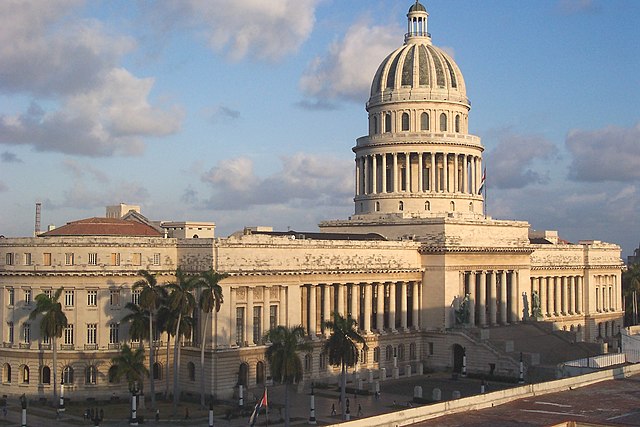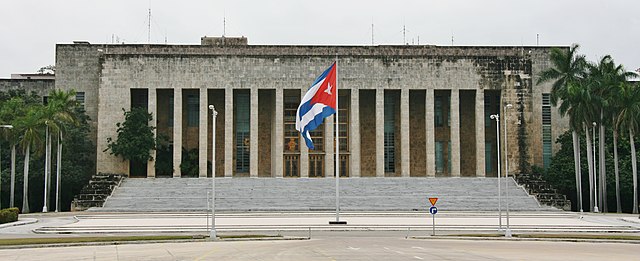Cuba has had a socialist political system since 1961 based on the "one state – one party" principle. Cuba is constitutionally defined as a single party Marxist–Leninist socialist republic with semi-presidential powers. The present Constitution of Cuba, which was passed in a 2019 referendum, also describes the role of the Communist Party of Cuba to be the "leading force of society and of the state" and as having the capability of setting national policy, and First Secretary of the Communist Party is the most powerful position in Cuba. The 2019 Constitution of Cuba identifies the ideals represented by Cuban independence hero José Martí and revolutionary leader Fidel Castro as the primary foundation of Cuba's political system, while also stressing the importance of the influence of the ideas of Marx, Engels, and Lenin.
El Capitolio, former seat of the National Assembly of People's Power.
A CDR in Old Havana on Paseo de Martí facing Parque Central
Ministry of the Interior building on the Plaza de la Revolución, Havana
Vladimir Putin and Fidel Castro in 2000.
The Communist Party of Cuba is the sole ruling party of Cuba. It was founded on 3 October 1965 as the successor to the United Party of the Cuban Socialist Revolution, which was in turn made up of the 26th of July Movement and Popular Socialist Party that seized power in Cuba after the 1959 Cuban Revolution. The party governs Cuba as an authoritarian one-party state where dissidence and political opposition are prohibited and repressed. The Cuban constitution ascribes the role of the party to be the "leading force of society and of the state".
A billboard in Havana promoting the "ongoing socialist revolution"
Party headquarters






